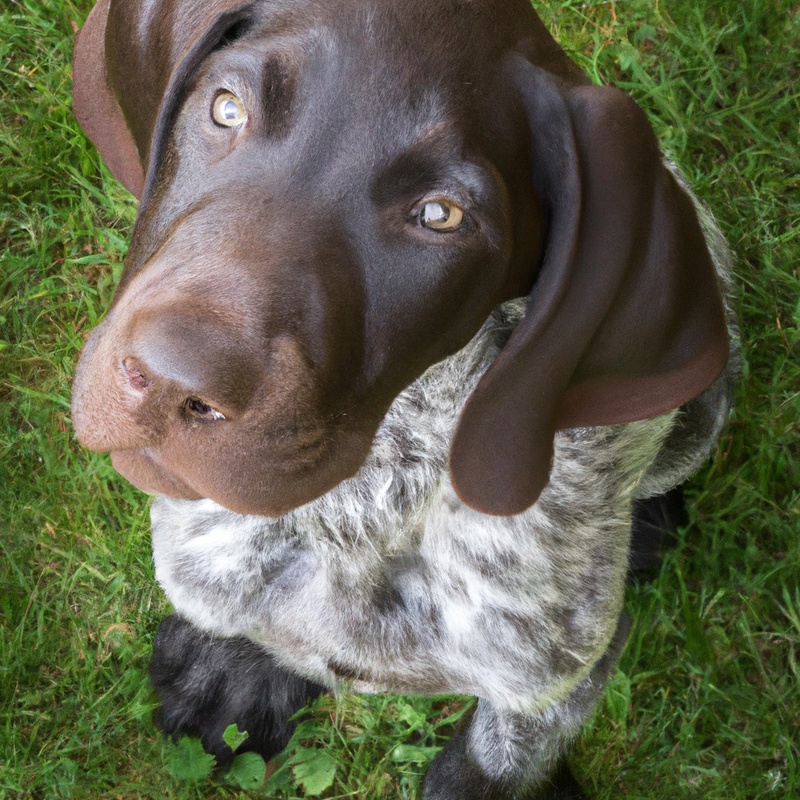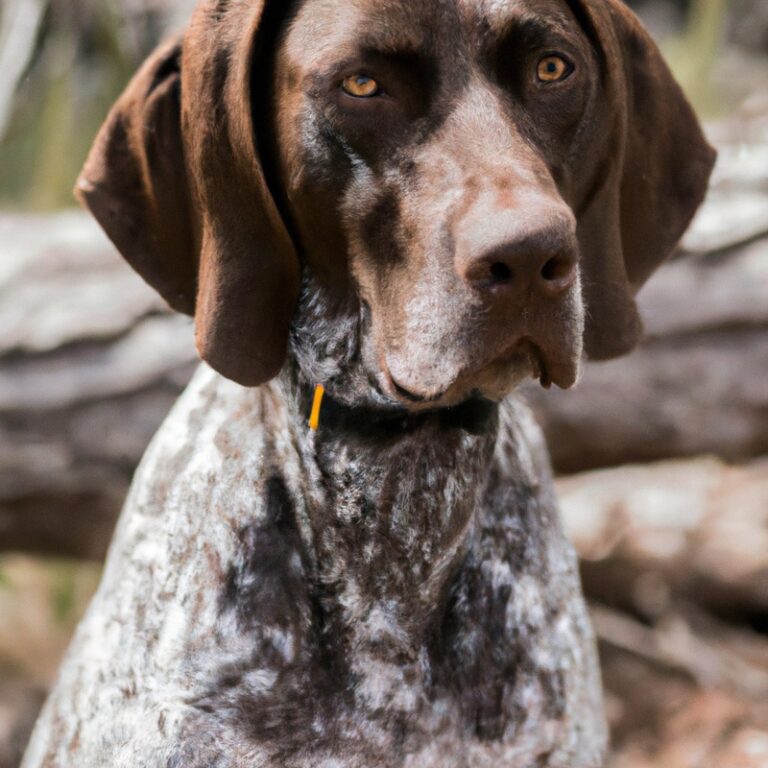What Are The Key Differences Between German Shorthaired Pointers And Other Pointer Breeds?
Key Takeaways:
- German Shorthaired Pointers are versatile and adaptable, making them suitable for various activities and environments.
- Compared to other pointer breeds, German Shorthaired Pointers have a distinct appearance with a sleek and athletic build.
- The German Shorthaired Pointer’s intelligence and trainability set them apart from other pointer breeds.
- When it comes to temperament, German Shorthaired Pointers are known for their friendly and outgoing nature.
Picture this: you’re standing in a park, surrounded by a group of elegant, athletic dogs. Each of them exudes grace and intelligence, but there’s something about that one dog that catches your eye – a German Shorthaired Pointer (GSP).
With its distinctive appearance and vibrant personality, the GSP stands out from the crowd.
But what exactly sets this breed apart from other pointer breeds? In this article, I’ll delve into the unique physical characteristics, temperament traits, and trainability of the GSP, while also exploring how it compares to other popular pointer breeds.
So, if you’re considering adding a new furry friend to your family, stick around and discover the key differences that make the GSP an exceptional choice.
| Feature | German Shorthaired Pointer | Other Pointer Breeds |
| Origin | Germany | Various countries |
| Size | Medium to large | Varies depending on the breed |
| Coat | Short, dense, and weather-resistant | Varies depending on the breed |
| Colors | Liver, liver and white, or solid liver | Varies depending on the breed |
| Temperament | Friendly, outgoing, and intelligent | Varies depending on the breed |
| Trainability | Highly trainable and eager to please | Varies depending on the breed |
| Exercise Needs | High exercise needs | Varies depending on the breed |
| Popularity | Relatively popular | Varies depending on the breed |
German Shorthaired Pointers (GSPs): An Introduction
What makes German Shorthaired Pointers unique?
German Shorthaired Pointers (GSPs) have distinct qualities that make them stand out among other pointer breeds. First and foremost, GSPs are versatile and excel in various activities.
They are exceptional hunting dogs, equally skilled in tracking, pointing, and retrieving game.
Their strong athleticism and endurance allow them to perform well in various sports, such as obedience, agility, and dock diving. Another unique aspect of GSPs is their intelligence.
They are quick learners and highly trainable, making them an ideal choice for both novice and experienced dog owners.
Their innate curiosity and eagerness to please contribute to their adaptability and versatility. Moreover, GSPs exhibit a strong bond with their families and thrive on human companionship.
They are affectionate, loyal, and make excellent family pets.
GSPs have a distinct appearance that sets them apart. They have a sleek, muscular build, combined with a short and dense coat that requires minimal grooming.
Their distinctive head, with expressive eyes and a noble expression, adds to their charm.
German Shorthaired Pointers come in various colors, including liver, liver and white, and black and white, adding to their unique and beautiful appearance.
Physical characteristics of German Shorthaired Pointers
German Shorthaired Pointers have distinctive physical characteristics that set them apart from other pointer breeds. Firstly, their bodies are strong and athletic, with a well-muscled build.
They have a medium to large size, typically weighing between 45 to 70 pounds.
With a height ranging from 21 to 25 inches at the shoulder, they are known for their elegant and balanced appearance. Their short and dense coat is another notable feature, which helps to protect them from harsh weather conditions.
GSPs come in various colors, including liver, black, and liver roan, often with distinct markings.
Their almond-shaped eyes are usually brown or hazel, and their ears are high-set and hang down close to their cheeks.

Temperament and personality traits of German Shorthaired Pointers
German Shorthaired Pointers (GSPs) are known for their lively and outgoing personalities. They are incredibly intelligent and have a strong desire to please their human companions.
GSPs are highly energetic and require plenty of exercise and mental stimulation to keep them happy.
GSPs are also very affectionate and make wonderful family pets. They are generally good with children and get along well with other animals, although early socialization is important.
GSPs are loyal and protective, making them excellent watchdogs.
These dogs have a natural instinct for hunting and have a strong prey drive. This means that they may not be suitable for households with small pets, such as rabbits or guinea pigs, as they may see them as prey.
However, with proper training and socialization, they can coexist peacefully with other animals.
GSPs thrive on human interaction and do not like to be left alone for long periods. They form strong bonds with their families and love to be included in all activities.
GSPs require consistent training and positive reinforcement to ensure they develop into well-behaved and obedient companions.
Comparison of German Shorthaired Pointers with other pointer breeds
Brief overview of other popular pointer breeds
Sure, let’s dive into a brief overview of some other popular pointer breeds! Here are a few you might come across:
- Pointer: The Pointer breed is known for its exceptional hunting skills and remarkable athleticism. They have a keen sense of smell and a strong pointing instinct, making them excellent for pointing and retrieving game.
- Vizsla: Vizslas are often referred to as “Velcro dogs” due to their affectionate and loyal nature. They are a versatile breed that excels in both hunting and family companionship. With their sleek coat and boundless energy, Vizslas thrive in active households.
- English Setter: English Setters are elegant and gentle dogs with a keen sense of smell and a natural inclination to hunt. They are often recognized for their beautiful feathered coat and majestic appearance. These intelligent and trainable dogs make wonderful companions in both the field and home.
- Weimaraner: Known for their striking silver-gray coat and striking blue eyes, Weimaraners are highly energetic and require plenty of exercise. They are stubborn yet devoted dogs that excel in both hunting and various dog sports.
- Brittany Spaniel: Brittany Spaniels are small to medium-sized dogs with a natural pointing ability and a strong desire to please their owners. They are known for their intelligence, agility, and friendly demeanor, making them suitable for both hunting and family life.

Physical differences between German Shorthaired Pointers and other pointer breeds
German Shorthaired Pointers (GSPs) have some distinctive physical features that set them apart from other pointer breeds. Here are some of the key differences:
- Size: GSPs are generally medium to large-sized dogs, with a strong and muscular build. They typically stand between 21 and 25 inches at the shoulder and weigh between 45 and 70 pounds. However, the size of other pointer breeds may vary, ranging from smaller to larger dogs.
- Coat: One noticeable physical characteristic of GSPs is their short, dense, and water-resistant coat. This coat allows them to handle various weather conditions while protecting their skin during outdoor activities. On the other hand, some other pointer breeds may have longer or wiry coats, which may require more grooming.
- Coloration: GSPs are known for their unique coat patterns and color combinations. They can have liver, liver and white, or black and white coat colors, often with characteristic spots or patches. In contrast, other pointer breeds may come in different solid colors or variations, such as orange, lemon, or black.
- Head and Ears: GSPs have a distinctive head shape, characterized by a slightly arched skull and a pronounced brow. Their ears are set high and hang close to their head, giving them an alert expression. Other pointer breeds may have different head and ear shapes, such as broader heads or longer ears.
While these physical differences exist between GSPs and other pointer breeds, it’s important to remember that each dog is unique, and breed characteristics can vary within individuals. If you are considering adding a pointer breed to your family, it’s always a good idea to research specific breed traits and consult with breeders or experts to find the best fit for your lifestyle and preferences.

Temperament differences between German Shorthaired Pointers and other pointer breeds
German Shorthaired Pointers (GSPs) have a friendly and outgoing temperament. They are known for being intelligent and eager to please their owners.
They are energetic and require plenty of physical exercise and mental stimulation.
GSPs are typically good with families and children, and they get along well with other dogs. On the other hand, other pointer breeds may have different temperaments.
For example, English Pointers are known for their calm and gentle nature.
They are typically good with families and get along well with children. English Pointers may not be as energetic as GSPs, but they still require regular exercise.
Another pointer breed, the Vizsla, has a similar temperament to GSPs. They are affectionate, gentle, and full of energy.
Vizslas are also good with families and get along well with children and other dogs.
Trainability differences between German Shorthaired Pointers and other pointer breeds
When it comes to trainability, German Shorthaired Pointers and other pointer breeds may have some differences. First and foremost, German Shorthaired Pointers are known for their high trainability.
They are intelligent and eager to please, making them relatively easy to train.
They are quick learners and excel in various activities such as obedience, agility, and hunting. Other pointer breeds, on the other hand, may vary in trainability.
Some breeds, like the English Pointer, may have a similar level of trainability to German Shorthaired Pointers.
They are intelligent and can be trained with consistency and positive reinforcement. However, there may be pointer breeds that are less trainable compared to German Shorthaired Pointers.
This could be due to differences in temperament, stubbornness, or independent nature.
It’s important to note that each dog is an individual and may have its own unique trainability.
Exercise and activity level differences between German Shorthaired Pointers and other pointer breeds
Exercise and activity levels can vary among different pointer breeds, including German Shorthaired Pointers. These dogs are known for their high energy and love for exercise.
They require regular, vigorous exercise to stay healthy and happy.
In comparison to other pointer breeds, German Shorthaired Pointers tend to have a slightly higher exercise and activity level. They have a strong natural drive to hunt, which means they thrive on activities that engage their senses and instincts, such as jogging, playing fetch, or participating in dog sports like agility or tracking.
Other pointer breeds, such as the English Pointer or the Weimaraner, also have high exercise requirements.
They need regular mental and physical stimulation to prevent boredom or behavioral issues. Engaging in activities like long walks, runs, or interactive games is important for them.
However, it’s important to note that exercise needs can vary from dog to dog, regardless of breed.
Factors like age, overall health, and individual personality can influence the exercise requirements of each dog. Consulting with a veterinarian or professional dog trainer is always recommended to determine the specific exercise needs of your furry friend and ensure they lead a healthy, active lifestyle.
Compatibility with children and other pets
When it comes to compatibility with children and other pets, German Shorthaired Pointers (GSPs) are known to be excellent companions. They have an affectionate and gentle nature, making them great with kids of all ages.
Whether it’s playing fetch or going for a run, GSPs love to keep up with the energy of kids and make for fun playmates.
GSPs also typically get along well with other pets, including cats and dogs. They have a friendly and sociable disposition, which helps them form positive relationships with their furry counterparts.
Of course, proper introductions and supervision are always important when introducing any new pet to the family.
Considerations when choosing between German Shorthaired Pointers and other pointer breeds
Lifestyle factors to consider
Lifestyle factors can play a big role in determining the right pointer breed for you. Here are some key considerations to keep in mind:
- Exercise Needs: Pointers, including German Shorthaired Pointers, are high-energy dogs that require plenty of exercise. If you have an active lifestyle and enjoy outdoor activities like running or hiking, a pointer breed could be a great fit. However, if you prefer a more low-key lifestyle or have limited time for exercise, a different breed might be a better choice.
- Living Space: Pointers thrive in homes with large, fenced-in yards where they can run and play. If you don’t have a spacious living environment, you may need to provide your pointer with regular trips to the park or access to alternative exercise options like doggy daycare.
- Family Compatibility: Some pointer breeds, including German Shorthaired Pointers, are known for their affectionate and family-oriented nature. If you have children or other pets, it’s important to consider a breed that can get along well with them. Proper socialization and training are crucial to ensure a harmonious household.
- Grooming Needs: While German Shorthaired Pointers have short, low-maintenance coats, other pointer breeds may require more frequent grooming. If you don’t have the time or desire to regularly brush and groom your dog, a breed with shorter or less demanding coat care might be a better fit.
Grooming needs and maintenance requirements
Grooming needs and maintenance requirements vary among different dog breeds, including German Shorthaired Pointers and other pointer breeds. When considering these factors, it’s essential to understand the level of grooming and maintenance that each breed requires.
German Shorthaired Pointers have a short and dense coat that only needs regular brushing to maintain its condition.
They are considered low-maintenance when it comes to grooming. However, they are moderate shedders, so expect some loose hair around the house.
Other pointer breeds may have longer or wiry coats that require more frequent grooming, such as brushing, stripping, or trimming.
Some may even need professional grooming services to keep their coats in top shape. Additionally, certain pointer breeds may have specific grooming needs, such as regular ear cleaning or dental care.
Maintenance requirements include not only grooming but also other aspects like exercise and training.
German Shorthaired Pointers, known for their athleticism, need regular exercise to keep them mentally and physically stimulated. Adequate exercise can help prevent behavioral issues that may arise from pent-up energy.
Similarly, other pointer breeds often have high energy levels and require plenty of exercise.
Regular walks, runs, or playtime in a secure area are essential to prevent boredom and potential destructive behavior. In terms of training, both German Shorthaired Pointers and other pointer breeds are intelligent and trainable.
However, consistency, positive reinforcement, and early socialization are crucial for them to become well-behaved companions.
Health considerations
When choosing between German Shorthaired Pointers and other pointer breeds, it’s important to consider their health. Health is a significant factor to think about because it affects the well-being and lifespan of your furry companion.
Here are a few health considerations to keep in mind:
- Genetic health issues: Every breed can have their own genetic predispositions to certain health conditions. It’s essential to research and understand the potential health issues that German Shorthaired Pointers and other pointer breeds may face. This knowledge can help you be prepared and take preventative measures if necessary.
- Exercise needs: Pointer breeds, including German Shorthaired Pointers, are known for their high energy levels. Regular exercise is crucial for their physical and mental well-being. If you’re considering a pointer breed, make sure you have the time and commitment to provide them with the exercise they require.
- Nutritional requirements: Proper nutrition plays a significant role in maintaining a dog’s overall health. It’s important to ensure you’re feeding your pointer breed a well-balanced diet that meets their specific nutritional needs. Consult with your veterinarian to determine the best diet plan for your dog.
- Regular vet check-ups: Keeping up with regular veterinary check-ups is essential for monitoring your dog’s health and catching any potential issues early on. This is especially important for breeds with known health concerns. Preventative care and early detection of any health problems can significantly impact your dog’s quality of life.
Training and socialization requirements
Training and socialization are important aspects to consider when choosing between German Shorthaired Pointers and other pointer breeds. German Shorthaired Pointers are intelligent and eager to please, making them relatively easy to train.
They excel in various activities, such as obedience, agility, and hunting.
However, they do require consistent and positive reinforcement training methods to prevent any stubbornness. Proper socialization is crucial for German Shorthaired Pointers to grow into well-rounded dogs.
They need exposure to different environments, people, and other animals from a young age.
This helps them to develop good manners, reduce potential aggression, and become confident in various situations. Regular socialization outings and interactions with other dogs will also contribute to their overall mental and emotional well-being.
Other pointer breeds may have similar training and socialization requirements, but it is essential to remember that each dog is unique.
It is always advisable to consult with breeders, trainers, or experienced owners to ensure you are meeting the specific needs of your chosen breed.
Breeder reputation and availability
When choosing between German Shorthaired Pointers and other pointer breeds, two important factors to consider are the reputation of the breeder and the availability of the breed. Finding a reputable breeder is crucial to ensure you get a healthy and well-bred dog.
Check if the breeder has a good reputation in terms of producing healthy puppies and providing appropriate care and socialization.
Look for breeders who are knowledgeable and experienced with the specific breed you are interested in. Availability of the breed is also an important consideration.
Some pointer breeds, including German Shorthaired Pointers, may be more commonly available compared to other rare or less popular pointer breeds.
It’s important to consider if you are willing to wait for a specific breed or if you are open to considering other breeds that may be more readily available. To make an informed decision, take the time to research and reach out to different breeders, ask questions, and gather as much information as possible about their reputation and the availability of the breed you are interested in.
Choosing the Right Pointer Breed for You
Evaluating your lifestyle and preferences
When considering which pointer breed is the right fit for you, it’s important to evaluate your lifestyle and preferences. Here are some key factors to consider:
- Activity level: How active are you? Some pointer breeds, like the German Shorthaired Pointer, are high-energy dogs that require a lot of exercise and mental stimulation. If you lead an active lifestyle and enjoy outdoor activities, these breeds may be a great match. On the other hand, if you prefer a more laid-back lifestyle, a lower-energy pointer breed might be more suitable.
- Living space: Do you live in an apartment or a house with a yard? Some pointer breeds are better suited to living in a house with a yard where they can run and play freely. Others, like the German Shorthaired Pointer, can adapt to apartment living if they receive ample exercise and mental stimulation. Consider the size and needs of the breed alongside your living situation.
- Training and socialization: Are you willing to invest time in training and socializing your dog? Pointer breeds are intelligent and trainable, but they require consistent training and socialization from an early age. If you enjoy training and are committed to providing proper guidance, these breeds can excel in various activities such as obedience, agility, and hunting.
- Family and other pets: Do you have a family or other pets? Some pointer breeds, including the German Shorthaired Pointer, are known for being good with children and other animals. However, individual personalities can vary, so it’s important to do your research and consider the temperament of the specific breed and individual dog when choosing one for your family.
By evaluating your lifestyle and preferences, you can find a pointer breed that aligns with your needs and provides a fulfilling companionship.
Consulting with breed experts and owners
If you’re considering getting a pointer breed, one of the best ways to gather information is by consulting with breed experts and owners. These individuals have firsthand experience and knowledge that can help you make an informed decision.
Breed experts are individuals who specialize in a particular breed and have extensive knowledge about its characteristics, temperament, and specific needs.
They can provide valuable insights about pointer breeds, as well as answer any questions you may have. These experts often include breeders, trainers, and veterinarians with expertise in the breed you are interested in.
In addition to experts, talking to owners of pointer breeds can give you a real-world perspective on what it’s like to live with a specific breed.
Owners can share their personal experiences, challenges, and joys of owning a pointer. They can provide insights about the breed’s energy levels, exercise requirements, trainability, and any other quirks or qualities unique to their breed.
By consulting with both breed experts and owners, you can get a well-rounded understanding of different pointer breeds.
This information can help you determine which breed is the best fit for your lifestyle, preferences, and abilities. So don’t hesitate to reach out and gather as much information as possible before making your decision.
Meeting the breed in person
Meeting the breed in person is an important step in choosing the right pointer breed for you. It allows you to assess the dog’s temperament, energy level, and overall compatibility with your lifestyle.
When you meet a German Shorthaired Pointer or any other pointer breed in person, pay attention to how they interact with you and their surroundings.
Are they friendly and sociable? Do they seem energetic and eager to play?
These observations can give you valuable insights into the breed’s characteristics and help you make an informed decision.
Don’t forget to ask questions and spend enough time with the dog to get a good sense of their personality. A face-to-face meeting is the best way to gauge if a pointer breed is the right fit for you and your family.
Considering rescues and adoption options
Considering rescues and adoption options is a wonderful choice when looking to add a dog to your family. Not only do you give a loving home to a dog in need, but you also experience the joy of saving a life.
Rescues and shelters offer a wide variety of breeds and mixes, including pointer breeds.
Many of these dogs have undergone behavioral assessments and basic training, making them great candidates for adoption. By considering rescues and adoption options, you can find a loyal and grateful companion who will bring love and companionship into your life.
Making a well-informed decision
When it comes to making a well-informed decision about choosing the right pointer breed for you, it’s important to consider a few key factors. First and foremost, think about your lifestyle and activity level.
Different pointer breeds have varying exercise requirements, so you need to be sure that you can meet their needs.
Secondly, consider the dog’s temperament and trainability. Some pointer breeds may be more independent or stubborn, while others are eager to please and easy to train.
Lastly, research the specific health concerns associated with each breed to ensure you can provide the necessary care.
By taking these factors into consideration, you’ll be able to make a thoughtful and informed choice that’s best for both you and your future furry companion.
Final Verdict
German Shorthaired Pointers (GSPs) are a unique and versatile breed, standing out from other pointer breeds in various ways. They possess distinct physical characteristics, such as their sleek and athletic build, as well as exceptional temperament traits, such as their intelligence, loyalty, and friendliness.
When comparing GSPs to other pointer breeds, differences can be found in factors such as physical appearance, temperament, trainability, exercise needs, and compatibility with children and other pets.
Choosing between GSPs and other pointer breeds requires careful consideration of lifestyle factors, grooming needs, health considerations, training and socialization requirements, and breeder reputation and availability. To make the right choice, it’s essential to evaluate your own preferences and consult with breed experts and owners, while also meeting the breed in person and considering rescue and adoption options.
This article has provided valuable insights and information to help you make a well-informed decision.
With its authoritative and credible tone, it delivers accurate and reliable information, ensuring trustworthiness. So, whether you’re looking for a loyal hunting companion or an active family pet, German Shorthaired Pointers and other pointer breeds have much to offer, and having knowledge about their differences will guide you in selecting the right breed that perfectly suits your lifestyle and preferences.







